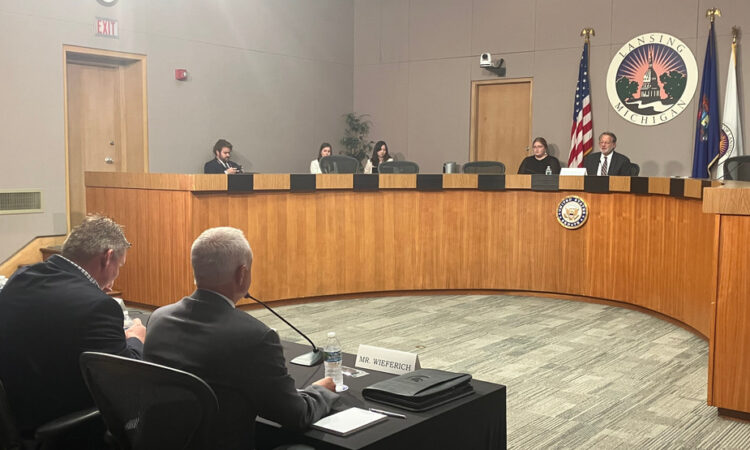Sen. Peters ‘optimistic’ on continued investment under infrastructure law in Michigan

LANSING, Mich. — “It is something that is absolutely essential to our state and local communities, and so with that, I am cautiously optimistic that we are going to continue to be able to make these types of investments,” Sen. Gary Peters (D – MI) said.
Tuesday, Peters hosted a subcommittee hearing in Lansing to examine opportunities and challenges in implementing the Infrastructure Investment and Jobs Act, also known as the Bipartisan Infrastructure Law, in Michigan.
Signed into law by President Biden in Nov. 2021, the legislation authorized funding for transportation and port infrastructure projects across the country, according to officials.
Tuesday’s hearing looked into implementing the law on the state and local level, including a rollout of funding in rural, urban and suburban areas throughout the state.
“I would hope that we can keep this kind of bipartisan coalition together to understand that investing in infrastructure is not a partisan issue,” Peters said.
Michigan is considerably diverse geographically, but it also has maritime assets and opportunities where lessons can be learned, according to Peters.
“Basically, the fundamentals of infrastructure touch every aspect of Michigan and so, regardless of the state you live in, things that are happening in Michigan [that] can be examples of what could work in your state,” Peters said.
In addition to giving the Great Lakes State a chance to fix its roads and bridges, the law expanded access to high-speed internet, upgraded railroads and airports, delivered clean water to families and made progress in fighting for a clean energy economy.
“In Detroit, Menominee, Monroe, and the Soo Locks, key Great Lakes ports have begun to receive the support they need to shore up our supply chain,” Peters said. “In Kalamazoo, Pontiac, Sault Ste Marie and Jackson, the bipartisan infrastructure law’s raise grant program has kickstarted new projects that will improve pedestrian safety and access, transform downtowns and reconstruct critical roads. We have it all in our state.”
More information about the Infrastructure Investment and Jobs Act can be found online.
